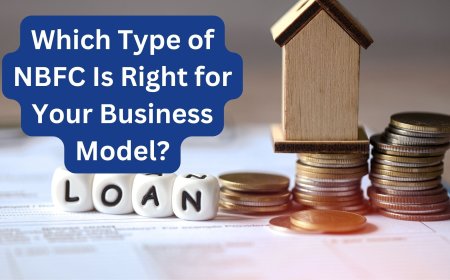How Recycled Materials and Cloud Technology Drive Business Efficiency
Discover how integrating recycled materials and cloud technology can boost sustainability and streamline operations, enhancing overall business efficiency and innovation.
In nowadays’s aggressive and speedy-paced economy, companies are constantly searching out ways to cut prices, function sustainably, and streamline operations. While many organizations recognize conventional value-saving techniques, a brand new wave of transformation is taking the region—pushed through sustainability and virtual technology. Two apparently unrelated yet pretty complementary forces—recycled substances and cloud generation—are now operating hand in hand to create smarter, extra efficient, and future-evidence corporations.As strain from governments, consumers, and international markets mounts for organizations to be greater environmentally accountable and digitally agile, progressive leaders are turning to recycled assets and virtual structures to benefit a critical facet. When mixed, these elements do extra than just lessen waste or enhance access—they lay the inspiration for lengthy-term operational efficiency.
The Power of Recycled Materials in Modern Business
One of the biggest changes in supply chain control is the developing shift towards recycled and reused materials. What turned into as soon as regarded as a spot eco-aware fashion is now a realistic business decision. Companies have discovered that repurposing substances not best supports their sustainability goals but also helps cut returns substantially on material expenses.Take the packaging enterprise as an instance: switching to recycled paperboard or plastics can lessen costs without sacrificing exceptional. In the style international, brands are upcycling fabrics to appeal to environmentally aware clients. And the development region is leading the manner, too. Using recycled metallic, wood, and aggregates reduces environmental impact and offers an extra low-cost alternative to raw substances. This is in which Business Efficiency with Cloud Technology turns into obvious—allowing better making plans, inventory tracking, and price estimation, in particular while sustainability is at the center of procurement.
Why Cloud Technology Is a Game-Changer for Efficiency
The advent of cloud computing into day by day enterprise operations has absolutely changed how groups are characterized. Instead of counting on heavy infrastructure or outdated structures, cloud generation allows agencies to get entry to information, equipment, and systems from anywhere with an internet connection.This shift has considerably reduced overhead expenses. Businesses no longer need huge IT departments or physical records centers. Everything from accounting software programs to team collaboration platforms can now be controlled in the cloud. Cloud equipment automates repetitive tasks, lessens human mistakes, and makes important statistics available in actual time—resulting in quicker selection-making and extra agile operations.Beyond inner advantages, cloud structures additionally improve the purchaser's enjoyment. From streamlined communication to quicker order processing and better inventory control, agencies grow to be extra responsive and efficient throughout all departments.
Sustainability and Technology: The Perfect Match
The intersection of sustainability and the cloud era is one of the most exciting areas of innovation nowadays. Businesses at the moment are capable of singing and examine their environmental performance with more accuracy using cloud-primarily based analytics tools.Companies can monitor energy use, emissions, and waste degrees across special branches, helping them meet environmental objectives even as cutting operational expenses. This type of real-time visibility no longer best helps inexperienced tasks but also guarantees businesses remain compliant with evolving environmental regulations.Cloud systems also help in setting sustainability desires and measuring progress. Whether it’s lowering water usage or increasing the proportion of recycled content in products, having a centralized, virtual dashboard improves duty and drives smarter choices.
Smart Supply Chains with a Circular Mindset
Supply chains have traditionally been linear: produce, use, dispose. But with developing issues over resource depletion, more corporations are moving toward a circular economy—one which focuses on reusing and recycling materials all through the lifecycle of a product.This shift is enabled and stronger by cloud-based platforms that offer deep visibility into the sourcing, motion, and recycling of materials. Through smart logistics, inventory automation, and predictive analytics, cloud structures can advocate the maximum sustainable options at every stage of manufacturing.A good example of this synergy is in Recycled Materials in Construction. Construction corporations at the moment are using digital gear to hint the origins of reclaimed materials, reveal availability, and even predict how tons of recycled input can be wished for destiny initiatives. This now not most effectively guarantees environmental compliance however additionally reduces procurement delays and waste, in the long run enhancing profitability and performance.
Success Stories: When Green Meets Smart
Across industries, agencies are accomplishing real fulfillment by mixing recycled substances with cloud-based total equipment. For instance, numerous international retail brands now use cloud software to tune the carbon footprint of every product from design to transport, letting them make changes in real time. This transparency builds agreement with customers and offers the corporation better management over sustainability metrics.Similarly, manufacturers that integrate recycled aluminum or plastics into their strategies are seeing higher price savings while paired with predictive cloud technologies that optimize resource use and limit downtime.
Challenges and Considerations
Of course, implementing each recycled fabric strategy and cloud generation doesn’t come without challenges. There may be upfront fees, especially when integrating cloud systems or organising partnerships with recycled material providers. However, the return on investment is often seen fast thru decreased waste, better information accuracy, and progressed client satisfaction.It’s additionally critical for groups to vet the first-rate and reliability of their recycled inputs. Certifications and third-birthday celebration audits can help make sure requirements are met. When it involves cloud adoption, selecting the right issuer and preserving sturdy cybersecurity practices are crucial to safeguard organization data.
Conclusion: A Smarter Path Forward
The fusion of sustainability and virtual innovation is now not a fashion—it’s becoming the standard. Businesses that include recycled materials and cloud technology are not simplest helping the planet however additionally growing more streamlined, resilient, and profitable operations.This dual strategy gives tangible benefits: fee savings, progressed brand popularity, operational agility, and lengthy-term competitiveness. As markets evolve and environmental guidelines tighten, groups that adapt now will be far higher positioned for destiny.In an international society in which every decision is subject, leveraging recycled resources and the cloud isn’t just an exact exercise—it’s smart enterprise.

















































































